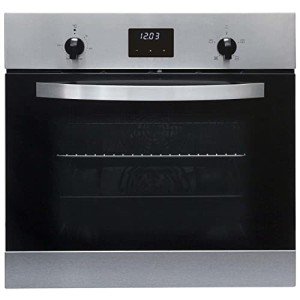Understanding Ovens and Hobs: A Comprehensive Guide
When it pertains to cooking devices, ovens and hobs are amongst the most necessary tools found in modern-day kitchen areas. They play essential roles in meal preparation, changing raw active ingredients into scrumptious meals. Understanding the differences between various kinds of ovens and hobs and how to choose the right one can make a considerable distinction in cooking effectiveness and food quality.
This short article checks out ovens and hobs in information, supplying insights into their types, features, advantages, and common FAQs. Whether you are an experienced chef or a beginner cook, this info will assist you make informed choices for your cooking needs.
Kinds of Ovens
Ovens come in several types, each designed for particular cooking methods and designs. Here is an in-depth appearance at the most typical kinds of ovens:
| Type of Oven | Description | Best For |
|---|---|---|
| Traditional Oven | Uses heating components located at the top and bottom for even cooking. | Baking, roasting, and general cooking |
| Convection Oven | Functions a fan that circulates hot air for quick and even cooking. | Baking pastries and cookies, roasting meats |
| Steam Oven | Utilizes steam to cook food, preserving wetness and nutrients. | Veggies and fish |
| Microwave Oven | Rapidly cooks food utilizing microwave radiation. | Reheating and quick meals |
| Wall Oven | Built straight into the wall for space-saving cooking options. | Small kitchens and contemporary designs |
| Skill Level | Offers multiple cooking modes consisting of baking, broiling, and toasting. | Versatile cooking needs |
Types of Hobs
Hobs, also known as cooktops, been available in numerous types based upon their fuel source and style. Comprehending these options can help in finding the best fit for your kitchen setup:
| Type of Hob | Description | Best For |
|---|---|---|
| Gas Hob | Makes use of gas flames for cooking, supplying instant heat control. | Traditional cooking techniques |
| Electric Hob | Uses electric coils or induction aspects to heat pots and pans. | Even heat circulation |
| Induction Hob | Employs electro-magnetic energy to directly warm pots, supplying fast and efficient cooking. | Energy-efficient cooking |
| Solid Plate Hob | A type of electric hob with strong plates that requires time to warm up but keeps heat well. | Sluggish cooking |
| Ceramic Hob | Features a glass-ceramic surface area permitting easy cleaning, with electric heating elements below. | Aesthetic appeal |
Aspects to Consider When Choosing an Oven and Hob
Choosing the best oven and hob mix needs careful factor to consider of several aspects. Below is a list of crucial aspects to keep in mind:
Cooking Style
- Are you an everyday cook or an occasional baker?
- Do you prefer steaming or frying?
Kitchen Size
- What area is readily available in your kitchen for the devices?
- Will you need integrated or freestanding models?
Fuel Source
- Do you have access to gas, or would you choose electric?
- Are you thinking about induction cooking innovation?
Budget
- What is your budget for purchasing an oven and hob?
- Are you considering a high-end model or a more economical choice?
Energy Efficiency
- Are you aiming to minimize your energy intake?
- Do you choose appliances that include high-efficiency rankings?
Advantages of Ovens and Hobs
Both ovens and hobs bring unique advantages to the kitchen. Here's a summary of some benefits:
Ovens:
- Versatility: Able to deal with a wide range of cooking approaches from baking to roasting and broiling.
- Constant Results: Even heat distribution supplies reliable cooking results.
- Big Capacity: Ideal for big meals and batch cooking.
Hobs:
- Control: Gas hobs offer immediate heat modifications, beneficial for accurate cooking.
- Performance: Induction hobs are known for their quicker heat-up times and energy performance.
- Independent Cooking: Multiple hobs enable cooking a number of meals at the same time.
Picking the best ovens and hobs is essential for anybody wanting to enhance their cooking abilities and kitchen efficiency. By comprehending Ovens And Hobs of each device, alongside their benefits and functions, customers can make educated decisions that accommodate their culinary routines and choices.
As cooking areas progress, so do the technologies surrounding cooking home appliances. Investing in the ideal combination of an oven and hob can cause much better cooking experiences, greater food quality, and even enjoyable time spent in the kitchen.
Regularly Asked Questions (FAQs)
What is the distinction in between convection and standard ovens?
- A convection oven utilizes a fan to distribute air for even cooking, while a traditional oven relies just on top and bottom heating elements.
How do induction hobs work?
- Induction hobs use electro-magnetic fields to directly heat pots and pans made from magnetic materials, leading to much faster cooking times and more energy performance.
Are gas hobs much safer than electric hobs?
- Security depends upon use and setup. Gas hobs require proper ventilation and can present a fire risk, while electric hobs might present threats of burns due to their hot surfaces.
Can I bake in a steam oven?
- Yes, a steam oven can be used for baking, often leading to moister and fluffier baked items, particularly breads and pastries.
What should I try to find in a built-in oven?
- Look for features like capacity, cooking modes, energy efficiency rankings, and ease of cleaning.
By thinking about the information and guides provided in this short article, readers can quickly browse the world of ovens and hobs, ensuring that they pick the best devices to match their cooking needs.

